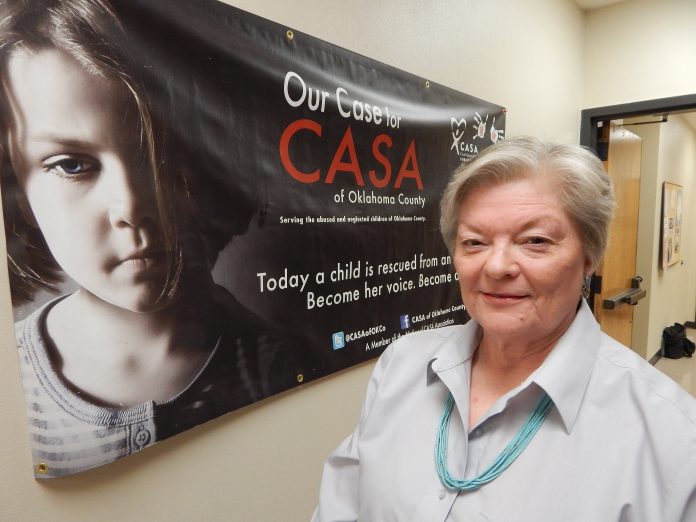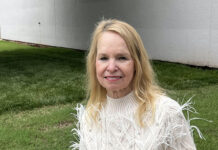
by James Coburn – Writer/Photographer
Jonette Dunlap continues to feel an altruistic calling as a retired school teacher.
Her life had been dedicated to children and she wanted to see more of them prosper and experience the beauty of life. Six years ago, she discovered being an advocate for Court Appointed Special Advocates (CASA), would provide a stepping stone for many more children that she has mentored and acted in their best interests.
The goal of a CASA is to advocate for children and teenagers during a child custody court proceeding due to their legal guardians’ alleged abuse and neglect. Dunlap hopes that more retired school teachers will consider volunteering as a CASA.
“I have a passion for this,” Dunlap said. “It’s being able to take what I did as a teacher involved in the child’s life, but only so far, and go with them further, and be able to be an active advocate for their situations.”
A judge is looking for a neutral third-party opinion to cover bureaucratic concerns. They want someone to give an objective point of view to what would best serve the children, said Alex Corbett, CASA volunteer recruiter and training facilitator.
DHS is mandated by statute to attempt the reunification of the child and legal guardian if there is a glimmer of hope. CASA is not bound by that law when advocating.
There are currently 174 active CASA volunteers in Oklahoma County, he said. During the course of a year, there are typically 240-250 active volunteers on one or more cases, he added.
Corbett refers to Dunlap being a rare breed — a super CASA. Dunlap accepts the maximum work-load of five cases.
“By putting a cap on the number of cases a CASA volunteer can serve on — the wisdom being that the CASA volunteer comes to know the children, families and the core situation much better than the DHS worker has the time to do,” Corbett said. “The DHS workers want to, but they don’t have the time to dig as deeply in the case as what a CASA volunteer can do.”
Dunlap cautioned that there are not enough CASA volunteers to serve the growing needs of children in Oklahoma County. The ideal situation would be to have a CASA on every case, for every child that enters the custody of the Oklahoma County DHS system.
“That way we could make sure that all areas are being covered,” Dunlap continued. “And as Alex was mentioning, the DHS workers are very good, but they only have a certain amount of time. So we step in and fill some of those gaps. We can make more visits. We do have more time to go to the schools.”
As a teacher, she would make home visits and see families living the way most people would not consider as normal. She could not do anything about it, Dunlap said. But as a CASA, she is empowered to advocate for at-risk and deprived children in the custody of the Oklahoma Department of Human Services.
“We follow them along through that time in custody,” Dunlap said. “With my particular background, I always look at that education.”
Many children are far behind literacy standards when entering the DHS system. These children become even further behind in their education when being placed in different areas of custody or for therapies in different patient facilities, she said.
Providing opportunities to change a child’s life is also uplifting for Dunlap.
“Being there to see their eyes light up. That’s the main thing,” Dunlap said. “Seeing them have hope and being able to make a difference in their case; my reward is when I’m able to change something that was not getting taken care of in the way it should have been.”
She recalls a case when a boy was supposedly home-schooled. But it was found that at the age of 8, when he entered DHS custody, he had been without any schooling. The boy knew nothing about math or spelling.
“As an 8-year-old he had to start in the first grade,” Dunlap said. “He started behind. He is still behind but making some strides to catch-up,” Dunlap said. “That is a success story because I’ve spent time with him, taking him to the library and tutoring him in reading.”
Education is sparking the boy’s curiosity to learn and engage in life, when before, he was very quiet because he could not read at all.
“He now is very proud to be able to read some little beginning books,” Dunlap said.
Reading is so important to one’s life because illiteracy impacts a growing prison population in Oklahoma.
“If you are interested in children, and you like making a difference, CASA is a great place to do it,” Dunlap said. “You pretty much have control of your time and the only things that are fixed in stone are the court dates. So you’re expected to be there with your child and have a report written for the court.”
The volunteer is supported by an advocate supervisor who accompanies the CASA in all court proceedings, Corbett said.












